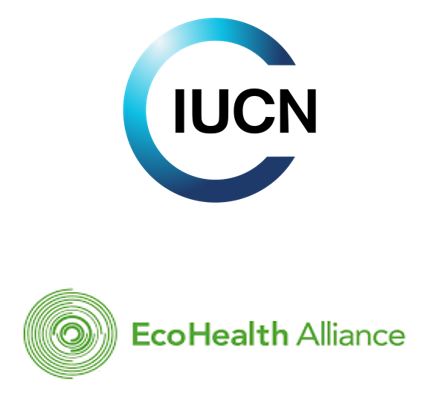Wildlife News

HPAI Updates for Zoo and Wildlife Professionals (Webinar recording). Go HERE for more information and to listen to the 90 min recording.

Share your success stories!
Call for Case Studies on Wildlife Health and Zoonotic Disease Risk Reduction
IUCN and EcoHealth Alliance have partnered to support knowledge sharing and best practices, utilizing the PANORAMA - Solutions for a Healthy Planet Species Conservation platform.
This project provides locally based solutions from across the globe that address the prevention, detection, response, and/or recovery from wildlife health and zoonotic disease threats and impacts. These solutions offer insight into the ways in which diverse stakeholders are utilizing interventions to optimize outcomes.
We are looking for case studies to highlight successful intervention strategies such as:
- Wildlife health and pathogen surveillance.
- Risk assessment and risk reduction strategies.
- Monitoring and early warning systems.
- Risk communication, community engagement, and behavior change; Outbreak investigation and response
- Vaccination programs; and One Health coordination mechanisms.
For any questions, or if you would like support in writing up a case study, please contact Catherine Machalaba (machalaba@ecohealthalliance.org). Please note there are several PANORAMA portals; please make sure to submit any case studies on this topic to the Species Conservation Portal. To learn more, please visit HERE.

IUCN Species Survival Commission Situation Analysis Wildlife Human Disease
Authored by Richard Kock and Hernan Caceres-Escobar
Abstract:
This situation analysis presents a thorough, evidence-based examination of the relationship between wildlife and zoonosis, wildlife and emerging human pathogens and associated diseases, their origins, drivers, and risk factors. There is considerable divergence of opinion around the subject both within and outside the biodiversity conservation community and given the ontological challenges and highly different perspectives, contradictory narrative is unsurprising. Context is all-important and to clarify this in the analysis, the evidence of human diseases coming from wildlife is compared to diseases emerging from domestic animals and humans themselves, to provide context and proportions of the relative risk. The report highlights key knowledge, and provides perspective on where research, policy, interventions, and capacity building are needed to reduce risks of zoonoses and emergent animal-origin human diseases globally.
To download this document, Click HERE.
Convention on the Conservation of Migratory Species of Wild Animals (CMS) and the Food and Agriculture Organization of the United Nations (FAO) provide update and recommendations on Recent Avian Influenza Outbreaks
Click HERE to access the statement from the Scientific task force on avian influenza and wild birds.